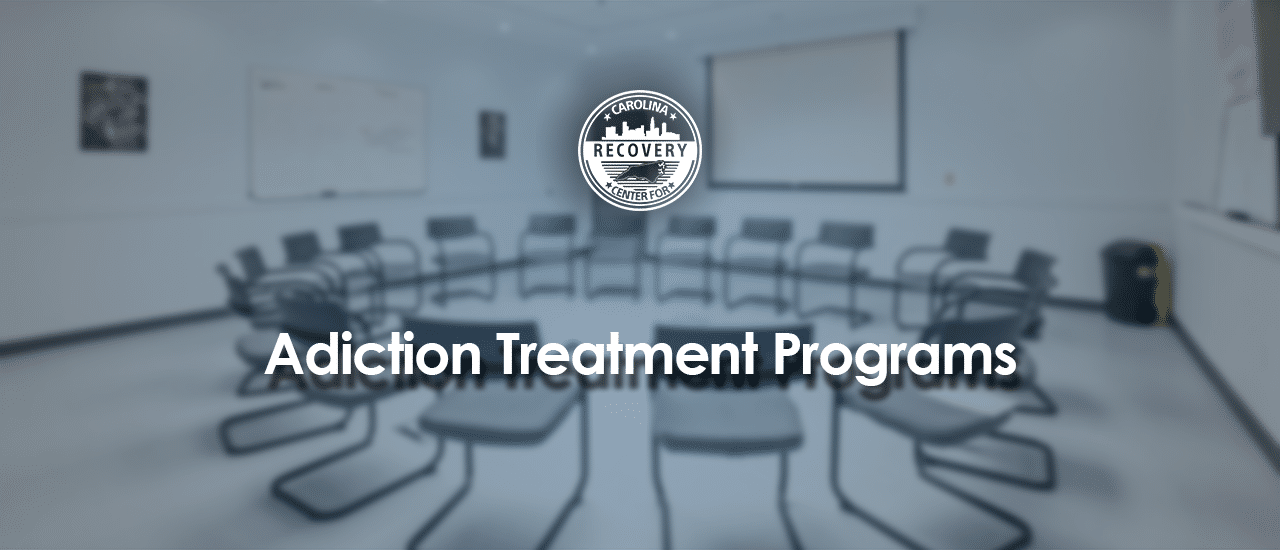


Clients at Carolina Center for Recovery will undergo a personalized journey through one of our highly effective treatment programs. Clients are specifically assigned to licensed mental health counselors, certified addiction professionals, or master-level therapists who not only specialize in the issues they’re facing but are paired with them based on their needs. Throughout treatment, clients experience the warmth and compassion of an entire staff that cares deeply about their success.
We pride ourselves on carefully selecting men and women who are not only thoroughly informed and knowledgeable about addiction, but also those who have personally experienced the trials and blessings of recovery themselves. Our team is comprised of doctors, clinicians, therapists, mentors, and recovery coaches with decades of experience in the field. Carolina Center for Recovery is lucky to have some of the most qualified and experienced addiction specialists in the country.
Medical detox is often viewed as the first step in the addiction treatment process because one of the first things that happens when you stop using drugs or alcohol is you go into withdrawal. Without medical supervision, drug and alcohol withdrawal can become serious, and life-threatening in some cases. Instead, it’s best to detox under the close supervision of medical professionals.
During detox, a team of doctors and nurses can assess your situation, monitor your symptoms, and prescribe medications to ease any discomfort you may experience. Supportive therapies and peer groups may also be offered to help you get a jumpstart on your recovery. Detox centers in North Carolina also offer holistic care, incorporating a healthy diet, exercise, meditation, and other natural therapies into the treatment program to promote overall well-being.
Detox typically lasts 1-2 weeks depending on how long your withdrawal symptoms last. When you’re done detoxing, it’s advised to transition to either an inpatient or outpatient treatment program for continued care.
Residential inpatient treatment is the highest level of care. During residential treatment, clients are required to live at the treatment facility or associated supervised housing. The 24-hour care and supervision offered foster a safe and supportive environment conducive to healing.
During inpatient rehab, clients’ main focus is recovery. The majority of the day is spent in group and individual therapy sessions or support groups, helping individuals address the root causes of their addiction and develop healthy coping skills. Meanwhile, living around like-minded peers who are also working toward sobriety can be encouraging, as watching others recover and relating to their struggles can help you stay motivated on your own journey.
Residential inpatient rehab is designed to provide intensive, around-the-clock care to people who have severe substance use disorders, co-occurring conditions, or those who don’t have access to safe, supportive housing. A residential program usually lasts anywhere between 30 and 90 days. After finishing residential treatment, it is best to transition away from rehab slowly by stepping down to a lower level of care.
Partial hospitalization programs offer the same all-day treatment services as inpatient rehab programs do, however, clients are not required to live at the treatment facility. PHP, sometimes known as day treatment, can be compared to a part-time job because clients attend treatment during the day, usually Monday-Friday, but return home or to a sober living home in the evening.
PHPs are an excellent option for people who need highly intensive, individualized care, but don’t need 24-hour supervision. PHPs are often paired with alumni programs, support groups, and sober living homes.
Intensive outpatient programs are a step down from PHP. Clients attend IOP in North Carolina three times a week for three-hour sessions, totaling nine hours of group and individual therapy each week. The goal of IOP is to help clients transition to a sober life with ongoing support.
The main focus of IOP is to create stable patterns of living through education, process groups, and individualized treatment planning. In IOP, clients are expected to obtain a sponsor, join a home group, and have a firm system in place for handling cravings and new relationships. Includes ongoing psychiatric and medical services.
As the lowest level of care in addiction treatment, outpatient programs typically meet once or twice a week for one-hour-long group therapy sessions. Outpatient rehab helps clients gain better insight into their substance abuse and the effects their disease has had on personal growth, family, and relationships. At the same time, the primary focus is on relapse prevention, as clients only spend a few hours each week in treatment.
During outpatient, you’re expected to apply the skills and tools you’ve learned during rehab in your daily life, effectively preventing relapse. Then, you can discuss your progress during sessions, learning every step of the way.
Outpatient rehab is a great way to transition away from a more structured treatment program. It’s also ideal for those who can’t attend a higher level of care due to financial, career, family, or personal life obligations.
Regardless of the level of care, our North Carolina addiction treatment program utilizes evidence-based therapies to help clients recover. Some of the most popular addiction treatment therapies are:
At Carolina Center for Recovery, we take an individualized approach to recovery, tailoring our treatment programs to the needs of our clients. Our comprehensive, compassionate, and unique treatment helps build a foundation for a healthy recovery and sober future. If you’d like to learn more about our addiction treatment programs in North Carolina or would like to get started with a confidential, risk-free assessment, please contact us today.